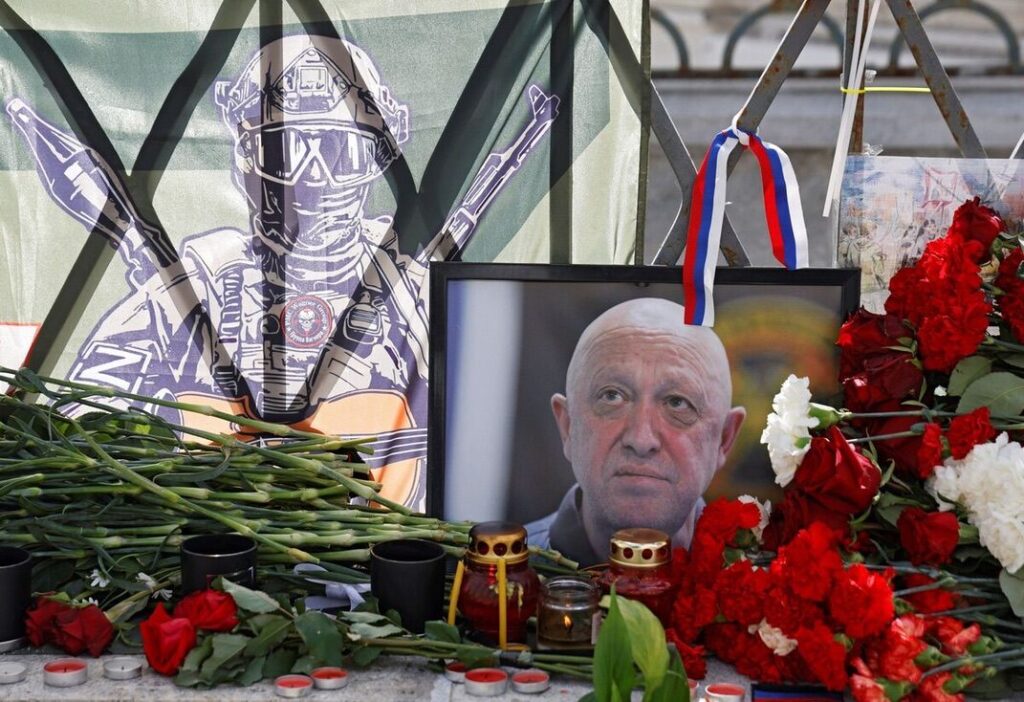“Show me the man, and I’ll show you the crime.”
Lavrentiy Beria, head of Joseph Stalin’s secret police
In my book (The Tall Poppy Syndrome: The Joy of Cutting Others Down) and blog (Last But Not Least! Politics and The Tall Poppy Syndrome), I have detailed the sizeable role governments, including our own, engage in TPS. In communist countries, it is de rigueur.
Vladimir Putin and his various government agencies are experts at cutting down the opposition. Some of their chicanery is clandestine while others are visible demonstrating to the world the consequences of opposing his regime.
Some of Putin’s political rivals, who are often designated as “traitors” as opposed to “critics,” have been cut down by various means: oligarchs Boris Berezovsky and Mikhail Khodorkovsky (expelled); opposition leaders Alexei Navalny and Vladimir Kara-Murza (poisoned and imprisoned); opposition politician Boris Nemtsov (shot); former military officer Sergei, Skripal (poisoned and survived). Prigozhin’s execution has been the most blatant, visible to the whole world.
Yevgeny Prigozhin was born in 1961 in St. Petersburg which is Putin’s birthplace as well. In the 1980s he spent nine years in prison for petty charges which included robbery. After release, he and his mother operated a chain of hot dog stands. His business acumen increased and he expanded into construction, casinos, and a supermarket chain.
Prigozhin’s Concord Catering agency served the Kremlin and Putin’s various residences. A friendship and mentorship followed. Thereafter, Concord Catering won governmental contracts to supply food to schools, government workers, and eventually the Army. Military construction contracts followed.
Mr. Priggozhin created and managed the Internet Research Agency. One of its activities was to influence the 2016 presidential election through disinformation and support for Donald Trump. This caused the United States to impose financial sanctions on him and several of his businesses. A U.S. arrest warrant was issued in 2018.
Founding and directing the Wagner Group in 2014 eventually led to his demise. Prigozhin requested land from the Defense Ministry to train a private army that would fight for Russia without a connection. He was given land in western Krasnodar. Their first adventure was a clandestine operation in eastern Ukraine.
With time Wagner was involved in wars across Africa and the Middle East. Human rights groups accused Wagner of committing atrocities in Mozambique, Libya, Syria, Sudan, and the Central African Republic.
Wagner’s public awareness began when it assisted the Russian Army’s capture of Kyiv after the Russian Army’s painfully public failed attempt shortly after the full-scale invasion of Ukraine in February 2022. Prigozhin recruited thousands of prisoners for the effort and offered freedom after six months. His 50,000 troops embraced ruthless violence. He would travel to his camps encouraging his methods. He denounced Moscow’s elite, military leadership, and Russian Defense Minister, Sergei K. Shoi, who never served.
Wagner was responsible for the taking and destruction of Bakhmut in May 2023. In June, he posted a 30-minute video claiming the invasion of Ukraine was a “racket” carried out by the corrupt elite. He also accused the Russian Army of attacking his troops.
On June 22-23, Wagner marched on and seized the southern city of Rostov-on-Don, the Russian southern command headquarters about 60 miles north of the Ukraine border and a nuclear base. He demanded the ouster of his rivals, Defense Minister Sergei Shoigu, and the chief of Russian general staff, Gen. Valery Gerasimov. He then marched toward Moscow shooting down Russian military planes and helicopters and killing fellow Russians.
Suddenly, the mutiny stopped. President Alexander Lukashenko of Belarus brokered a deal between Putin and Prigozhin which involved Wagner moving its operations to Belarus and immunity for its leaders. Thousands of the fighters moved to Belarus, some signed contracts with the Defense Ministry and some went home after reaching their required six months of battlefield service. Prigozhin’s security was guaranteed by Putin’s word. He traveled freely between Belarus and Russia and went to Africa where he was preparing to expand operations.
On August 23 a flight from Moscow to St. Petersberg crashed in the Tver region north of Moscow. Prigozhin and nine of his top leaders including Wagner military commander Dmitry Utkin were killed. After the crash and before anyone confirmed the occupants of the flight, Putin spoke of Prigozhin in the past tense calling him a “talented” man who “achieved the necessary results” but “made mistakes.” He also stated that Yevgeny Prigozhin had a “complicated fate.”
Prigozhin was cut down by his hubris. He humiliated Putin, his boss and patron, when he marched on Moscow. His conceit permitted him to actually believe at a June 29 meeting that Putin would forgive him, let bygones be bygones, and proceed with business as usual. Pity the fool! Grey Zone, a blog close to the Wagner group, posted “But even in hell, he will be the best.” Pride persisted.
Putin had his own pride to deal with. He was humiliated on the world stage. He was angry but managed it. In that same June 29 meeting, Putin must have been conceiving reprisals. His humiliation cried for consequential revenge. He is the master of emotional control and a firm believer that “revenge is a dish best-served cold.” Some called the aftermath schadenfreude.
I am a believer in “If you seek revenge, dig two graves.” Will Putin receive his comeuppance in our lifetime? Time will tell.

